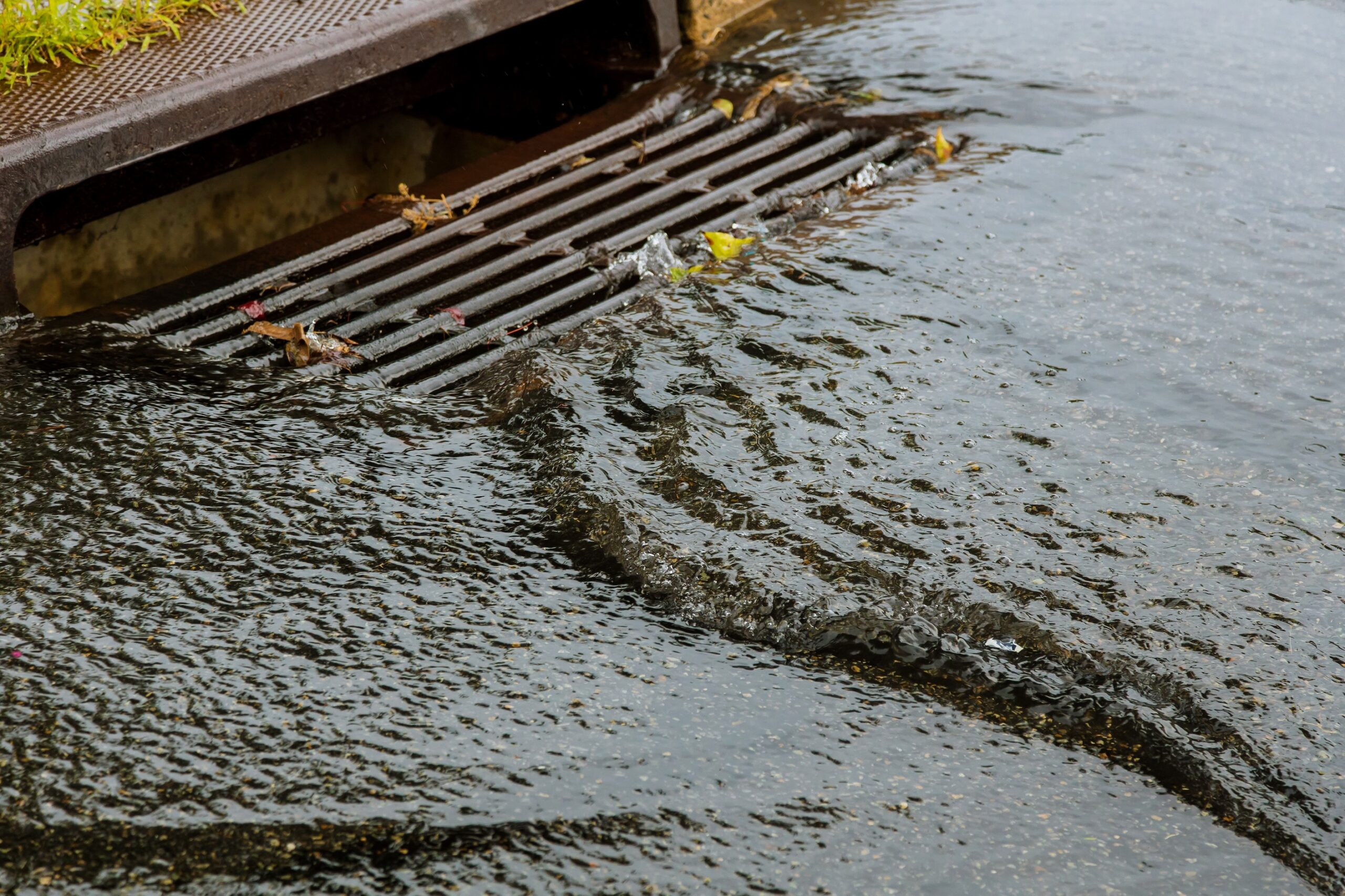
Dumping or discharging wastewater into storm drains is not only wrong—it’s illegal. Industrial wastewater, especially slurry, often contains contaminants or toxins that are harmful to both plants and animals. If sludge or slurry makes its way into rivers and lakes, it can wreak havoc on the environment and the natural ecosystems we all rely on.
One of the most common ways slurry gets into natural waterways is through illegal dumping into storm drains and other lightly regulated utilities.
The Difference Between a Storm Drain and a Sanitary Sewer
Let’s first clarify the difference between a storm sewer/drain and a sanitary sewer. A sanitary sewer consists of underground pipes that carry water from your home (sinks, showers, toilets) to a wastewater treatment plant. At the plant, water is filtered, treated, and discharged safely into the environment.
In contrast, storm drains carry rainfall, runoff, and other drainage directly to natural waterways. They’re designed to prevent flooding by transferring rainwater to larger bodies of water like streams, rivers, and lakes. Waste dumped into storm drains isn’t treated or filtered like sewer water, so any slurry discharged into a storm drain is guaranteed to contaminate the nearby environment.
The Effects of Illegal Wastewater Dumping
Construction debris, material stockpiles, automotive fluids, erosion, paint, pesticides, litter, industrial construction waste, and household materials are the most common storm drain contaminants. Contaminating fresh water sources often results in a damaging feedback loop. Pollutants can cause water to become cloudy, which then stifles plant growth and deprives fish of critical food. If action is not taken to stem pollution, the entire ecosystem may collapse. Even our drinking water can be contaminated by unregulated dumping.
Preventing Accidental Discharge
Dumping into storm drains is illegal, but it isn’t always done intentionally. Sometimes external factors cause slurry to accidentally find its way into nearby storm drains. Follow these tips to make sure you maintain control of your wastewater:
- Keep work areas clean by sweeping debris and cleaning storage containers
- Cover storage areas and dumpsters
- Install and maintain erosion controls
- Store contaminants away from storm drains
- Do not wash vehicles or equipment near storm drains
- Protect your worksite from storm water
- Report any spills to the city, county, or state
- Educate your fellow employees on proper wastewater management
- Filter your slurry using a filter press or other water filtration system
Manage Your Slurry with Full Circle Water
Full Circle Water offers a range of products designed to streamline the slurry management process. Our innovate filter press designs allow project managers to filter solids out of even the toughest slurry so it can be safely reintroduced into the environment.
Contact us today to learn more about how a water filtration system can mitigate the environmental impact of your worksite and keep your project safe from hefty fines.